- FAMA
- Researchers
-
Projects
- MESPI
- Knowledge Production Project >
-
Political Economy Project
>
- Development and the Uprisings
- Class Formations and Dynamics
- The Palestinian Economy: Fragmentation and Colonization
- Tunisia: A Political Economy in Transition
- Migrant States, Mobile Economies: Rethinking the Political in Contemporary Turkey
- Political Economy of the Middle East: Continuities & Discontinuities in Teaching & Research
- 2016 Political Economy Institute
- The Lebanon Project >
- The Palestine Project >
- The Civil Society Project >
- Middle East Media Project >
- The Egypt Project >
- Refugees and Migrants Project >
- Black-Palestinian Transnational Solidarities Project
- Initiatives
- Events
- Summer Institutes
- Internships
- Blog
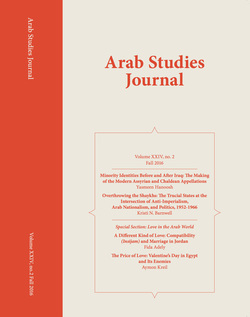 The Arab Studies Journal Volume XXIV, no. 2 Fall 2016 issue is now available for purchase! Read the following message from the editor: "The Arab world we are accustomed to seeing is one of accumulating catastrophes, multiple wars, occupations, and unprecedented authoritarian and sectarian militarization. By all counts, the conditions of people, as varied as they may be, in places like Iraq, Syria, Yemen, Egypt, and Palestine appear to only be getting worse before, and if, they will get any better. These conditions target the very possibility of life. Yet despite these hardships and amidst the varieties of dispossession and injustice we are now witnessing, people continue to live, to create, and to love. It is in the spirit of honoring this will to live that we present this Fall 2016 issue of Arab Studies Journal. We are proud to feature articles that explore the history of modern Assyrian and Chaldean appellations, contribute a literary analysis of Cairo in a time of intense political change and upheaval, and present a historical study of Arab nationalism in the “Trucial States.” A special section titled “Love in the Arab World” includes a rich body of ethnographic studies on compatibility and marriage in Jordan; Valentine’s Day in Egypt; and the politics of desire in post-uprising Syrian television drama. As always, we are pleased to accompany our articles with a review section that engages a number of recent contributions to the field. Together these pieces testify to the resilience of the everyday and the significance of untold stories that are perhaps best represented in the words of Mahmoud Darwish, “One day I will be what I wish to be." Continue reading here: Arab Studies Journal Announces Fall 2016 Issue: Editor's Note and Table of Contents To purchase and subscribe visit Tadween Publishing: Arab Studies Journal Fall 2016
0 Comments
FAMA and ASI at MESA 2016:
MESA Book Fair: November 17-19th, Booths 14-15 KPP Reception: Friday, November 18th at 9 pm, Floor Four-Salon D Join the Forum on Arab and Muslim Affairs, along with the entirety of the Arab Studies Institute, this year at the annual meeting of the Middle East Studies Association (MESA) in Boston, Massachusetts! Visit our exhibit at the MESA Book Fair (booths 14-15) and join us on Friday, November 18th at 9 pm for the Knowledge Production Project's Launching Reception. For more information click here. 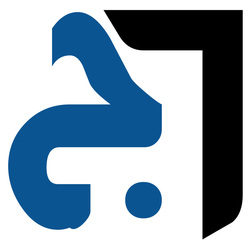 Jadaliyya turns six years old this fall! Read about Jadaliyya's journey and future plans here: "When Jadaliyya published its very first articles, the seismic political shifts that would engulf the Middle East starting in late 2010 had not yet started. Once those events and their resulting transformations got under way, Jadaliyya became ideally situated to reflect, interpret, and contribute to discussions about these changes—both in the West and the Middle East. A key reason behind Jadaliyya’s rise was the ability to deliver incisive, hard-hitting, nuanced, and critical content at this crucial time, in both English and Arabic. In the few years that followed, Jadaliyya was not simply a conduit for analysis; it also became an active organic platform for the mobilized voices on the margins of public discourse. We provided one of the few spaces to question the “experts” and the growing cult that sustained them..." Continue reading here: Jadaliyya Six Years On Contact: Tamar Ghabin | t.ghabin1@gmail.com | (610) 324-7203
Arab Studies Institute Releases Pedagogical Project Re the Gaza Strip, Gaza in Context July 2016 – Washington, DC - Israel does not have a Hamas problem, it does not have a Gaza problem, it has a Palestine problem. It has been two years since one of Israel’s most brutal attacks on the Palestinian people of Gaza in its history. Despite overwhelming evidence of the disparity of power between Israel and all Palestinians and the aggressiveness of Israel's exercise of its power, including excessive and brutal violence and collective punishment in Gaza in the form of occupation, siege, and frequent military assaults against dense and captive civilian populations, mainstream media and educational materials continue to frame Israel as the victim. This pedagogical project aims to correct the propagandistic character of mainstream media and educational coverage. Gaza in Context provides historical context, explaining Palestinian resistance, for what has been an Israeli narrative that exceptionalizes Gaza and removes it from the larger Palestinian struggle. This is an opportunity to understand the violence and Israel’s settler-colonial project. In practice, Israel has adopted intermittent, counterinsurgency campaigns aimed at diminishing the capacity of the captive Palestinian population to militarily resist Israel’s structural violence. Conceptually, it has set Gaza apart from the rest of the Palestinian-Israel conflict so that there is no continuity between Israel’s wars waged upon it and its treatment of Palestinians throughout Israel as well as the West Bank, including East Jerusalem. Together, the practice of systematic war and the framework of unique distinction have set the Gaza Strip apart from the question of Palestine and transformed it into a national security question. By emphasizing the role of Hamas and diminishing the question of Palestine, Israel has collapsed conditions in Gaza with asymmetric conflicts, or what has come to be known as the “global war on terror,” thus eliding the consequential distinctions between Palestinians and other non-state actors. This pedagogical project is an attempt to re-frame the issue in order to place greater emphasis on the broader question of Palestine and to explain Israel’s policy towards the Gaza Strip in that context. A 20-minute multi-media film that combines lecture, animation, typography, and footage from Palestine is the centerpiece of the project. Its other components include a teaching guide for instructional purposes, a bibliography for research purposes, and a compendium of Jadaliyya articles featured in what we call a JadMag. All of these elements are housed on the project’s own website, which is part of a larger research project on Palestine headed by the Forum on Arab and Muslim Affairs at the Arab Studies Institute. This interdisciplinary pedagogical project aims to resituate the question of Gaza within a broader Israeli settler-colonial framework, and it uses Israel’s most recent military onslaught, Operation Protective Edge, to do so. The release of this project coincides with the two-year anniversary of the brutal operation and aims to use the war as a teaching moment to counter Israel’s ahistorical claims that saturated the media. Gaza In Context seeks to provide an assertive framework for understanding Israel’s systemic attacks as part of the larger question of Palestine. Operation Protective Edge, and any past or future Israeli onslaughts, should be read within this framework in order to highlight the abnormality of the Palestinian condition and to realize a viable and just alternative. Who We Are We are a group of academics, activists, and artists seeking to shift the narrative around the Gaza Strip and Palestine, in general. This is an Arab Studies Institute project and is one component of its Palestine Project housed by the Forum on Muslim and Arab Affairs. Who We Want to Reach As a pedagogical project we hope that educators, in high school and college classrooms, as well as organizers and activists use these resources to interrogate the conditions in Gaza and use them as a point of departure for understanding the question of Palestine. The History of the Project The idea for Gaza in Context emerged during the summer of 2014 when Israel launched its most devastating offensive on the besieged Palestinian population of the Gaza Strip to date. Despite the immense destruction wrought upon a captive population Israel successfully claimed victimhood in western media as it launched 6,000 airstrikes and 50,000 artillery shells in an air and ground offensive that lasted for 51-days. The course of the media cycle made evident the need for an assertive framework to explain Israel’s systematic wars. Specifically, to counter its defensive claims and situate its aggression within a broader settler-colonial project in Palestine. See what people are saying about Gaza in Context: "Gaza in Context is a superb film accompanied by an excellent teaching guide with seminal articles on the various aspects of the subject, discussion questions, reading list and bibliography. Not only does the 20- minute- film provide the essential facts necessary for an understanding of the problem it helps the viewer understand the context, history and nature of the Israeli policy that brought the Gaza Strip to where it is today. It does this without committing the common error of treating Gaza in isolation from the rest of Palestine but helps explain the consistency in the Israeli policy over the years and throughout Palestine while focusing on its implications and manifestations for Gaza. The film ends with a cri de Coeur to all of us to do what we can to bring an end to what the film convincingly argues is not a natural but a human-made disaster, and save Gaza from continuing to be a zone of death."-- Raja Shehadeh, Palestinian lawyer, novelist, political activist, affiliate of the International Commission of Jurists, and a founder of the human rights organization Al-Haq. "Gaza in Context is a fantastic educational instrument, conveying in 20 minutes what it would take most people a lifetime to learn. It gives an accurate and visually brilliant portrayal of the tragedy that has befallen not only Gaza, but the entire Palestinian people."--Dr. Richard Falk, Professor Emeritus of International law, Princeton University, former United Nations Special Rapporteur to the Occupied Palestinian Territories. "I did not think it was possible to examine in 20 minutes what Gaza in Context does with such compelling clarity: Israeli policies toward Gaza and Palestine, which are inseparable; the core problems affecting Gaza and the deliberateness of the policies that have led to Gaza's disablement; Gaza's centrality in the Israeli-Palestinian conflict; and some common myths surrounding Gaza and the history of the conflict overall, which are straightforwardly debunked. An immensely valuable teaching tool, the film's power also lies in its fundamental humanity, a heartfelt entreaty to end the oppression and violence so that all people in this tortured part of the world may aspire to a future in which their children can flourish."--Dr. Sara Roy, senior research scholar at the Center for Middle Eastern Studies, co-chair of the Middle East Seminar, and co-chair of the Middle East Forum at the Center for Middle Eastern Studies. "Israel's deliberate fragmentation of the Palestinian people and their land for the past 70 years has also fragmented the Palestinian narrative and struggle for rights. This is just one reason why it is vital that efforts to stop and reverse Israel's colonization project adopt a holistic framework of analysis. Gaza in Context does just that: It zeroes in on Israel's repeated assaults against the besieged strip but then broadens out to show how Israel's attacks on Gaza are part of a consistent plan against the entire Palestinian people, a plan that from day one has sought to minimize the number of Palestinians in historic Palestine and maximize the number of Israeli Jews. The 20-minute film and accompanying educational materials succinctly provide the missing context in so many accounts of the conflict. It is an excellent entry point for the many thousands who are beginning to support Palestinian rights and an important refresher for others that have been involved in the movement for longer. Spread the word!" --Nadia Hijab, Executive Director, Al-Shabaka: The Palestinian Policy Network "Gaza in Context is an excellent educational resource that places Israel’s ongoing attacks on Palestinians in Gaza in their proper political context, that of settler colonialism, resistance to such colonialism and the Palestinian struggle to stay alive. In 20 minutes, this film debunks many of the Israeli-perpetuated myths — myths that have been conveniently adopted by others — by focusing on facts. The various articles and discussion questions accompanying the film serve as essential tools for those wishing to learn more."-- Diana Buttu, Palestinian lawyer, analyst and former advisor to the PLO. “Gaza in Context should be required viewing for everyone, including those familiar with the situation in Palestine. Powerful, informative, and persuasive, Noura Erakat delivers a fusillade of facts with concision and passion, obliterating in twenty minutes some three decades of media misinformation about Israel’s occupation of Palestine. An effective teaching tool, irrespective of one’s political position."-- Robin D. G. Kelley, Professor of History and African American Studies, UCLA 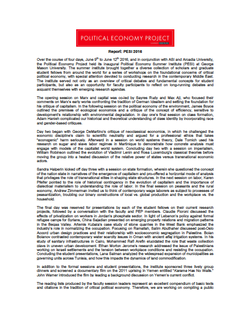 Over the course of four days, June 9th to June 12th 2016, and in conjunction with ASI and Arcadia University, the Political Economy Project held its inaugural Political Economy Summer Institute (PESI) at George Mason University. The summer institute brought together a diverse collection of scholars and graduate student fellows from around the world for a series of workshops on the foundational concerns of critical political economy, with special attention devoted to conducting research in the contemporary Middle East. The institute served not only as an overview of critical debates and fundamental concepts for student participants, but also as an opportunity for faculty participants to reflect on long-running debates and acquaint themselves with emerging research agendas. The opening session on Marx and capital was co-led by Sayres Rudy and Max Ajl, who focused their comments on Marx’s early works confronting the tradition of German Idealism and setting the foundation for his critique of capitalism. In the following session on the political economy of the environment, James Boyce outlined the premises of ecological economics and a critique of the concept of efficiency, sensitive to development’s relationship with environmental degradation. In day one’s final session on class formation, Adam Hanieh complicated our historical and theoretical understanding of class identity by incorporating race and gender-based critiques. Day two began with George DeMartino’s critique of neoclassical economics, in which he challenged the economic discipline’s claim to scientific neutrality and argued for a professional ethics that takes “econogenic” harm seriously. Afterward in a session on world systems theory, Dale Tomich used his research on sugar and slave labor regimes in Martinique to demonstrate how concrete analysis must engage with models of the capitalist world system. Concluding day two with a session on imperialism, William Robinson outlined the evolution of Vladimir Lenin and Rosa Luxemburg’s classical theories before moving the group into a heated discussion of the relative power of states versus transnational economic actors. Sandra Halperin kicked off day three with a session on state formation, wherein she questioned the concept of the nation state in narratives of the emergence of capitalism and pro-offered a horizontal mode of analysis that privileges the role of transnational elites in shaping state structures. In the next session on labor, Karen Pfeifer pointed to the role of historical contingency in the evolution of capitalism and the importance of dialectical materialism to understanding the role of labor. In the final session on peasants and the rural economy, Andrew Zimmerman invited us to think of contemporary wage laborers as subject to processes of peasantization, troubling our binary constructions of local vs. global production and the workplace vs. the household. The final day was reserved for presentations by each of the student fellows on their current research projects, followed by a conversation with the faculty and PEP members. Claudie Fioroni discussed the effects of privatization on workers in Jordan’s phosphate sector. In light of Lebanon’s policy against formal refugee camps for Syrians, China Sajadian presented on emerging property relations and migration patterns in the Beqaa Valley. Artemis Kubala’s case study of stone quarries in the West Bank emphasized the industry’s role in normalizing the occupation. Focusing on Ramallah, Salim Abuthaher discussed post-Oslo Accord urban design practices and their relationship with socioeconomic segregation in Palestine. Boian Boianov contrasted contemporary water scarcity issues in Oman with ancient aflaj irrigation systems. In his study of sanitary infrastructures in Cairo, Mohammed Rafi Arefin elucidated the role that waste collection plays in uneven urban development. Ethan Morton Jerome’s research addressed the issue of Palestinians working on Israeli settlements and the tension between workplace conditions and resisting the occupation. Concluding the student presentations, Lana Salman analyzed the widespread expansion of municipalities as governing units across Tunisia, and how this impacts the dynamics of land commodification. In addition to the formal sessions and student presentations, the institute sponsored three lively group dinners and screened a documentary film on the 2011 uprising in Yemen entitled “Karama Has No Walls.” John Warner introduced the film by leading a background discussion on Yemen’s current conflict. The reading lists produced by the faculty session leaders represent an excellent compendium of basic texts and citations in the tradition of critical political economy. Therefore, we are working on compiling a public PESI reading list in coordination with PEP’s annotated bibliography project. Looking forward, we are collecting feedback from this year’s participants and have already started planning for the 2017 workshop. Overall, the inaugural Political Economy Summer Institute was an overwhelming success.
Digital Activism and Civil Society in the Middle East and North Africa
June 3 & 4 @ Issam Fares Auditorium, American University of Beirut About the Workshop As part of the Arab Studies Institute's "The Media Project," the second in a series of critical workshops, conferences, and events will be held in Beirut, Lebanon to address the relationship between digital activism as spurred by the Arab uprisings and civil society institutions and actors. This workshop and conference, which are co-sponsored by the Arab Studies Institute, the Media Studies Program and the Asfari Institute for Civil Society and Citizenship at the American University of Beirut, and the Department of Media Studies at Notre Dame University, aim to convene civil society activists, active researchers, and media practitioners to reflect on the scope of digital activism in the region, with a particular focus on Lebanon and several other countries including Egypt, Syria, Tunisia, and Bahrain. Speakers will discuss the role of digital media activism in promoting civil and political rights in light of renewed challenges to social, economic, and political injustice. Academics with specialization in the respective protest movements will reflect on the possibility of organic transnational solidarity as well as shared visions, goals, and strategies. This conference will be an integral component of the networking of activists, scholars, media, and intellectuals with an interest in social movements online and the digital dimensions of civil society. The output of the conference will include the publication of a selection of the top papers and interventions from the conference as well as audio lectures and interviews with participants to be posted on ASI’s audio journal Status. Watch the Conference Panel 1: Digital Mobilization, Advocacy, & Networking Strategies: Lessons Learned Keynote 1: Sami Ben Gharbia, “The Limits of Citizen Media Post-Arab Spring” Keynote 2: Lina Attalah, “Betrayal: Online Media and The New Rules of the Game” Panel 2: Obstacles & Barriers Panel 3: Civil Society and the Media: Vision, Messages and Resonance Panel 4: Going Hyperlocal Closing Panel: Transnational Solidarity Participants Panelists: Imad Bazzi, Lucien Bourjeily, Haramoun Hamieh, Bassam Al Kantar, Diala Haidar, Sarah Jamal, Safa Al-Ahmad, Alaa Shehabi, Lina Attalah, Sami Ben Gharbia, Malihe Razazan, Neamat Badreddine, Jessica Dheere, Mohammad Dibo, Rouba El Helou, Riad Kobeissi, Diana Skeini, Chaker Noon, Habib Battah, Nazeer Rida Chairs & Discussants: May Farah, Maria Bou Zeid, Adel Iskandar, Shahram Aghamir, Rania Masri, Alicia Cagle, Eugene Sensenig, Layal Banham, Nassim Abi Ghanem Organizers: May Farah, Maria Bou Zeid, Adel Iskandar, Elie Haddad, Alicia Cagle 22-26 January 2016
University of California - Santa Barbara This four-day international symposium at UC Santa Barbara will take place on the five-year anniversary of the Tahrir Square Uprisings in 2011 that toppled Egypt’s long-term dictator Hosni Mubarak. These uprisings in Egypt accelerated waves of anti-crony-capitalist demonstrations, worker organizing, youth revolts, media insurgencies, and police brutality protests that overthrew governments, mobilized populations throughout the Middle East, and inspired the world. These Tahrir uprisings are called the 25 January Revolution in Egypt and the Arab world. It was on that day that millions of protesters first descended on downtown Cairo to reclaim history and power for the people. This conference is part of the Egypt Project initiative of the Arab Studies Institute. Future iterations will build on its findings. Political Economy of the Middle East Continuities & Discontinuities in Teaching & Research11/6/2015 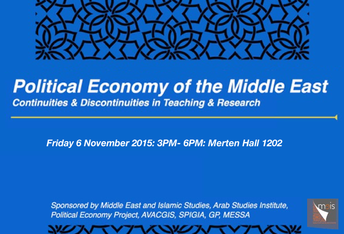 6 November 2015 @ 3:00pm Merten Hall 1202 George Mason University Sponsored by the Arab Studies Institute, Political Economy Project, George Mason University's Middle East and Islamic Studies, AVACGIS, SPGIA, and Global Programs Pizza and Refreshments Served Schedule Panel 1: Field Research : : 3 pm Melisande Genat, Stanford University From Agrarian Experiments in the Context of Socialist "Villagization" to Popular Displacements: Iraqi Kurdish Collective Towns During the Seventies Max Ajl, Cornell University Event and Conjuncture : Braudel, Political Economy, and the Tunisian Uprising Panel 2: Teaching the Middle East : : 4:30 pm Omar Dahi, Hampshire College Against the Grain: Syrian Refugees and the Political Economy of Survival Shana Marshall, George Washington University Do not go quietly: Human agency, contingency, and the push to formulate a structural explanation of the Arab Spring Ziad Abu-Rish, Ohio University Revisiting the Merchant Republic: Lebanon in Comparative Perspective Samer Abboud, Arcadia University The World Bank, the Arab Uprisings, and the Poverty of Neoliberal Repetition Bassam Haddad, George Mason University Incorporating Class and Capital in Teaching the Middle East: The Case of Syria, Then and Now 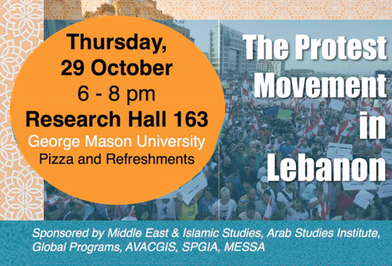 29 October 2015 @ 6pm - 8pm Research Hall 163 George Mason University Sponsored by the Arab Studies Institute, GMU Middle East and Islamic Studies Program GMU Global Programs Ali Vural Ak Center for Global Islamic Studies, GMU School of Policy, Government and International Affairs and GMU's Middle East Studies Student Association Pizza and Refreshments Served Speakers - Paul Salem, Middle East Institute The Challenges of Protest and Reform within Lebanon’s Sectarian Political System A young, civil, and urban vanguard has played important roles in Lebanon’s recent history from protests to end the civil war in the 1980s all the way through to the latest YouStink movement. This vanguard expresses a wider desire among the Lebanese public to get beyond corrupt sectarian and oligarchic politics toward more efficient, representative and accountable government. Yet these movements have failed to break through the system or to force it to reform in fundamental ways. What are the challenges that face these movements and is there indeed a path forward toward reform and better governance in Lebanon? Maya Mikdashi, Rutgers University Breaking Through Dominant Frames for Understanding Lebanon: The Trash Uprisings and Sectarianism, Liberalism, Gender, & Class This presentation suggests that the current protest movement, sparked by government failure to collect and process the country's garbage, poses challenges to dominant political and academic frames used to explain or study Lebanon. It outlines ways that activist coalitions, discourses, strategies, and practices trouble the "common sense" of sectarianism and political sectarianism, discourses on the weak and/or liberal state and its de-mobilized citizenry, and the place of gender or class in the political analysis of Lebanon. Rola el-Husseini, George Washington University The Unbearable Stench of Lebanese Politics: Sunni Representation and the Recent Garbage Crisis This presentation will address the garbage issue as another epiphenomenon of the continuing disintegration of political life. I will draw a direct connection between the popular revolts and the inability of the Sunni community to find adequate representation. I argue that the failure of Saad Hariri's future movement to keep the loyalty of the Sunnis, the inability of the Lebanese Islamists to attract the Sunni masses, and the lack of alternative candidates for Sunni leadership show the disarray the community finds itself in. This disarray is a reflection of the state of Lebanese politics as a whole. Ziad Abu-Rish, Ohio University Garbage Politics and Strategic Dilemmas in Lebanon’s Protest Movements This presentation will highlight some of the institutional and strategic constraints animating the mobilizations around the garbage crisis and corruption in Lebanon more generally. It will outline the different stages in the development of the protest movement(s) with particular attention to the demands, tactics, and alliances that underpin them. Moderated by Bassam Haddad, Director of Middle East and Islamic Studies, George Mason University 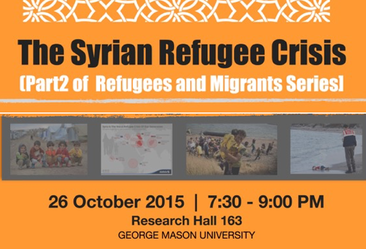 26 October 2015 @ 7:30pm - 9pm Research Hall 163 George Mason University Sponsored by the Arab Studies Institute, George Mason University's Middle East Studies Program, Roosevelt@Mason, Global Affairs, and Global Programs Pizza & Refreshments Served A panel discussion and audience question and answer session on the roots, nature, and implications of the Syrian Refugee Crisis . Schedule - Introductory Remarks Lisa Breglia, Director of Global Affairs and Global Programs, GMU On the Syrian Political Context Bassam Haddad, Director of the Middle East Studies Program, GMU Panel On International Law and Refugees Noura Erakat, Assistant Professor, New Century College, GMU The Complexities of the Syrian Refugee Crisis Nidal Betari, Senior Program Manager at People Demand Change, and co-founder of Refugees Without Borders (RWB) Statistics and Personal Narratives Musaab Balchi, Researcher and M.A. candidate in the Middle East and Islamic Studies Program, GMU |
Forum on Muslim and Arab AffairsFAMA is the research arm of the Arab Studies Institute. Archives
June 2017
Categories |
- FAMA
- Researchers
-
Projects
- MESPI
- Knowledge Production Project >
-
Political Economy Project
>
- Development and the Uprisings
- Class Formations and Dynamics
- The Palestinian Economy: Fragmentation and Colonization
- Tunisia: A Political Economy in Transition
- Migrant States, Mobile Economies: Rethinking the Political in Contemporary Turkey
- Political Economy of the Middle East: Continuities & Discontinuities in Teaching & Research
- 2016 Political Economy Institute
- The Lebanon Project >
- The Palestine Project >
- The Civil Society Project >
- Middle East Media Project >
- The Egypt Project >
- Refugees and Migrants Project >
- Black-Palestinian Transnational Solidarities Project
- Initiatives
- Events
- Summer Institutes
- Internships
- Blog

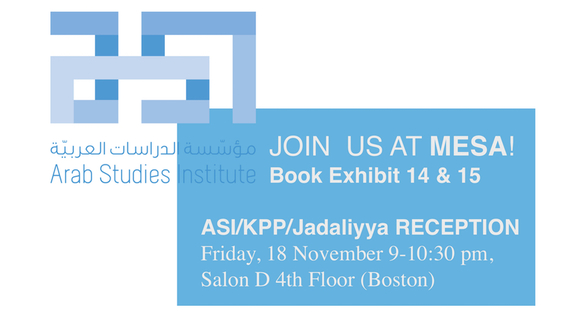
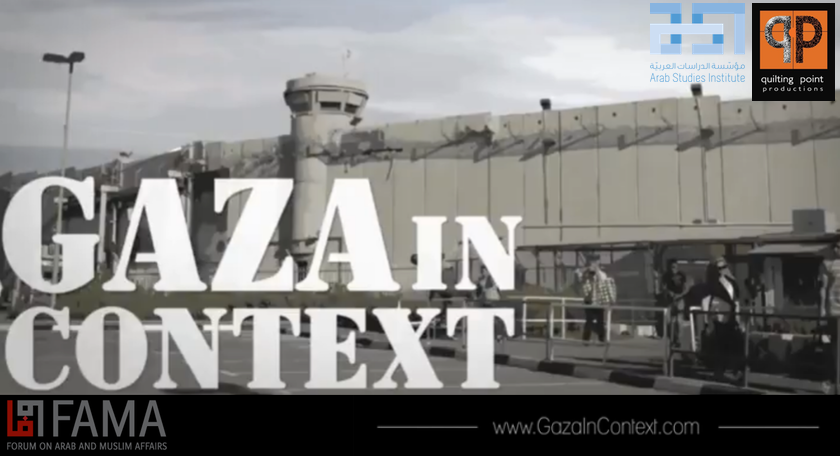

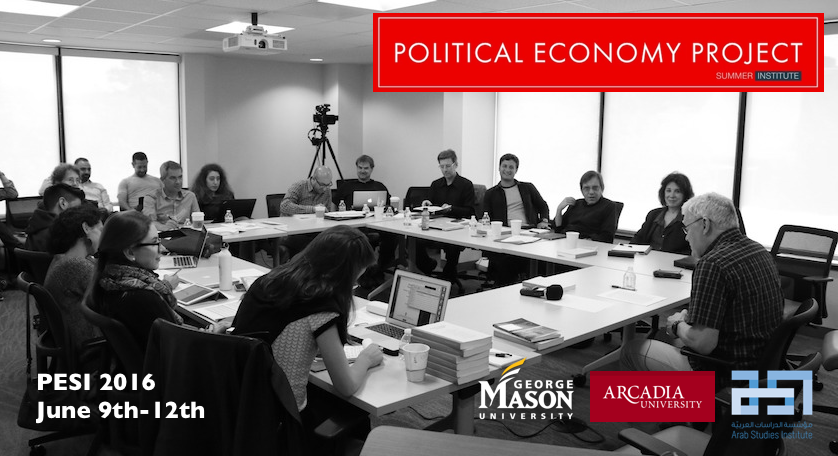
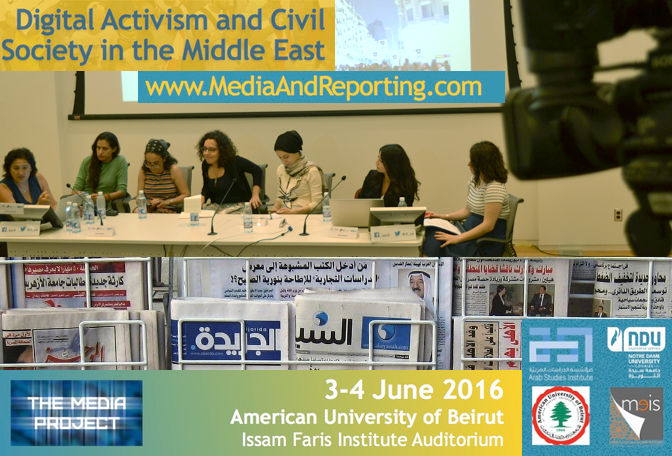
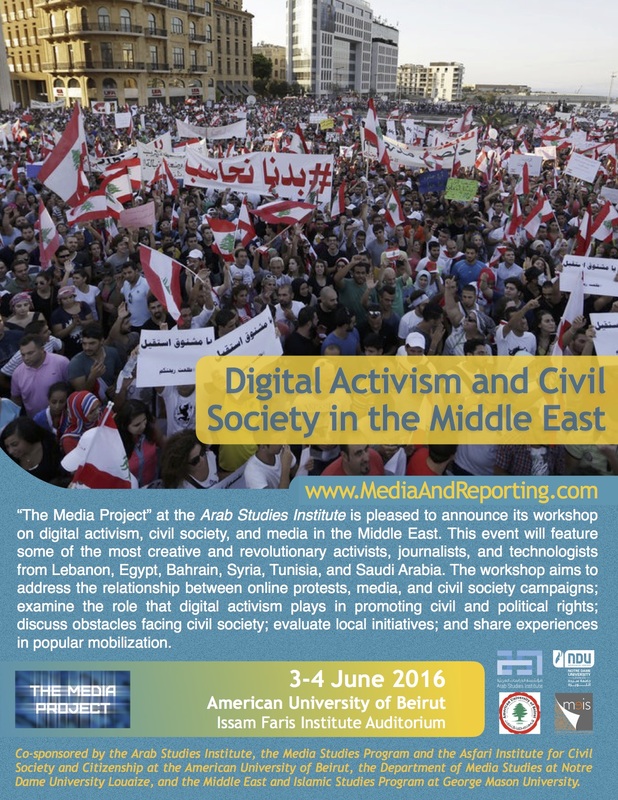
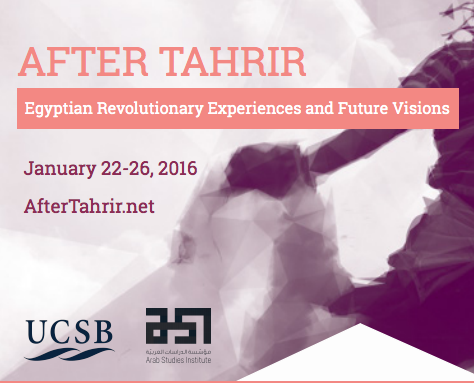
 RSS Feed
RSS Feed
